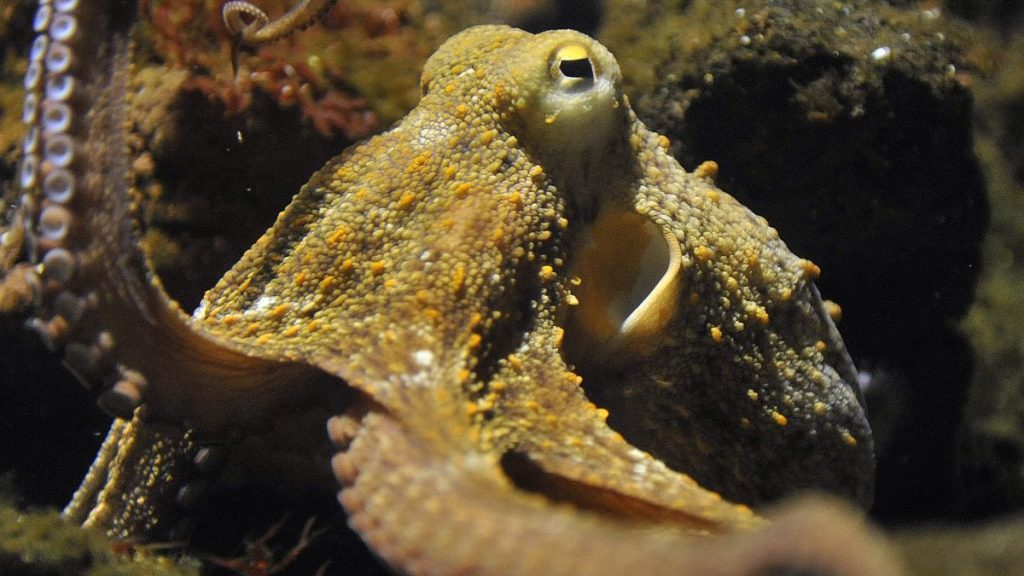A Spanish company, Nueva Pescanova, has achieved a groundbreaking feat in aquaculture by successfully reproducing octopuses in captivity. This accomplishment has paved the way for the company to open the first-ever octopus macro-farm in Spain’s Canary Islands, with the intention of producing 3,000 tons of cephalopod flesh annually. However, a coalition of scientists, environmentalists, and animal welfare advocates have raised concerns about the ethical implications of the project. They argue that keeping octopuses in high-density conditions goes against their solitary nature, leading to potential issues such as aggression and cannibalism.
The company plans to proceed with administrative procedures despite opposition, with the first farmed octopus expected to reach the market in 2027. Nueva Pescanova emphasizes that they will continuously monitor water conditions to ensure animal welfare and crop efficiency, with ten octopuses per cubic meter planned for the facility. The company has already started breeding octopuses in tanks in northern Spain and intends to supply key international markets such as the US, South Korea, and Japan with mature octopuses. However, the approval process for the octopus farm has been delayed due to concerns raised by local authorities.
The Canary Islands government has expressed reservations about the suitability of the farm’s location for cultivating a product fit for human consumption, citing potential environmental impacts from uncontrolled discharges in the area. Environmental and food safety assessments have raised questions about the project’s compliance with regulations and its potential effects on water quality and marine life in the region. Nueva Pescanova has yet to provide detailed information on the project’s environmental impact and how it plans to mitigate any adverse effects.
While the issue of octopus farming is currently a national concern, it may attract the attention of the European Commission due to the EU’s increasing focus on animal welfare. The EU treaties recognize animals as sentient beings, and the Commission is in the process of revising animal welfare legislation to broaden its scope and improve standards. The Commission has requested the European Food Safety Authority (EFSA) to provide insights into the welfare implications of farming cephalopods, including octopuses, in order to inform future policy decisions. The upcoming revision of EU animal welfare laws may address the ethical considerations surrounding octopus farming and other invertebrate species.
NGOs and advocacy groups are calling for the immediate halt of the octopus farming project, citing concerns about animal cruelty and environmental sustainability. They argue that octopuses are not suited for high-density farming conditions and may suffer from confinement and increased aggression leading to cannibalism. The opposition to the project highlights the complex ethical and environmental challenges associated with intensive aquaculture practices. The controversy surrounding the octopus farm underscores the broader debate about balancing economic interests with ethical considerations and environmental protection in the food production industry.


